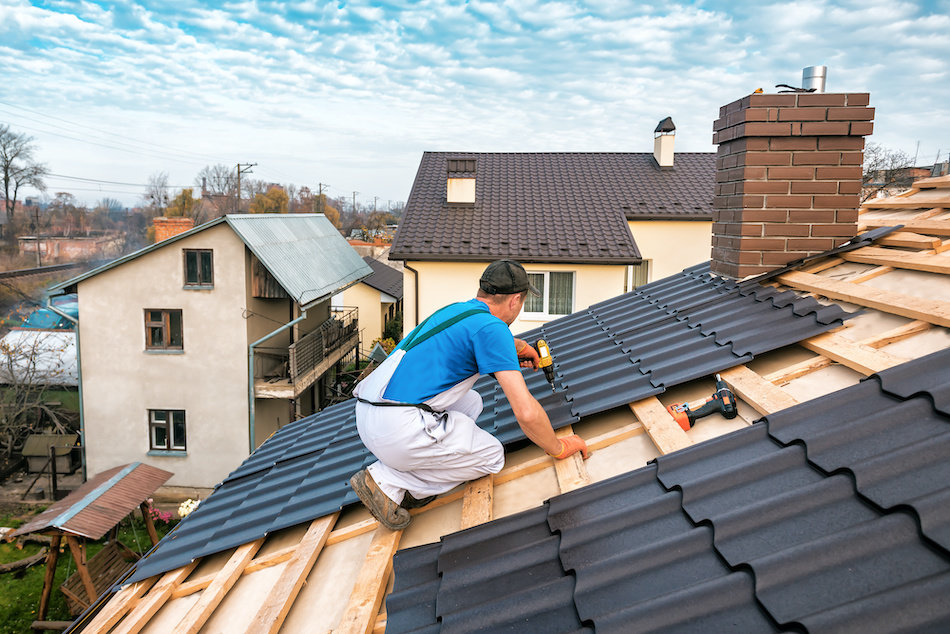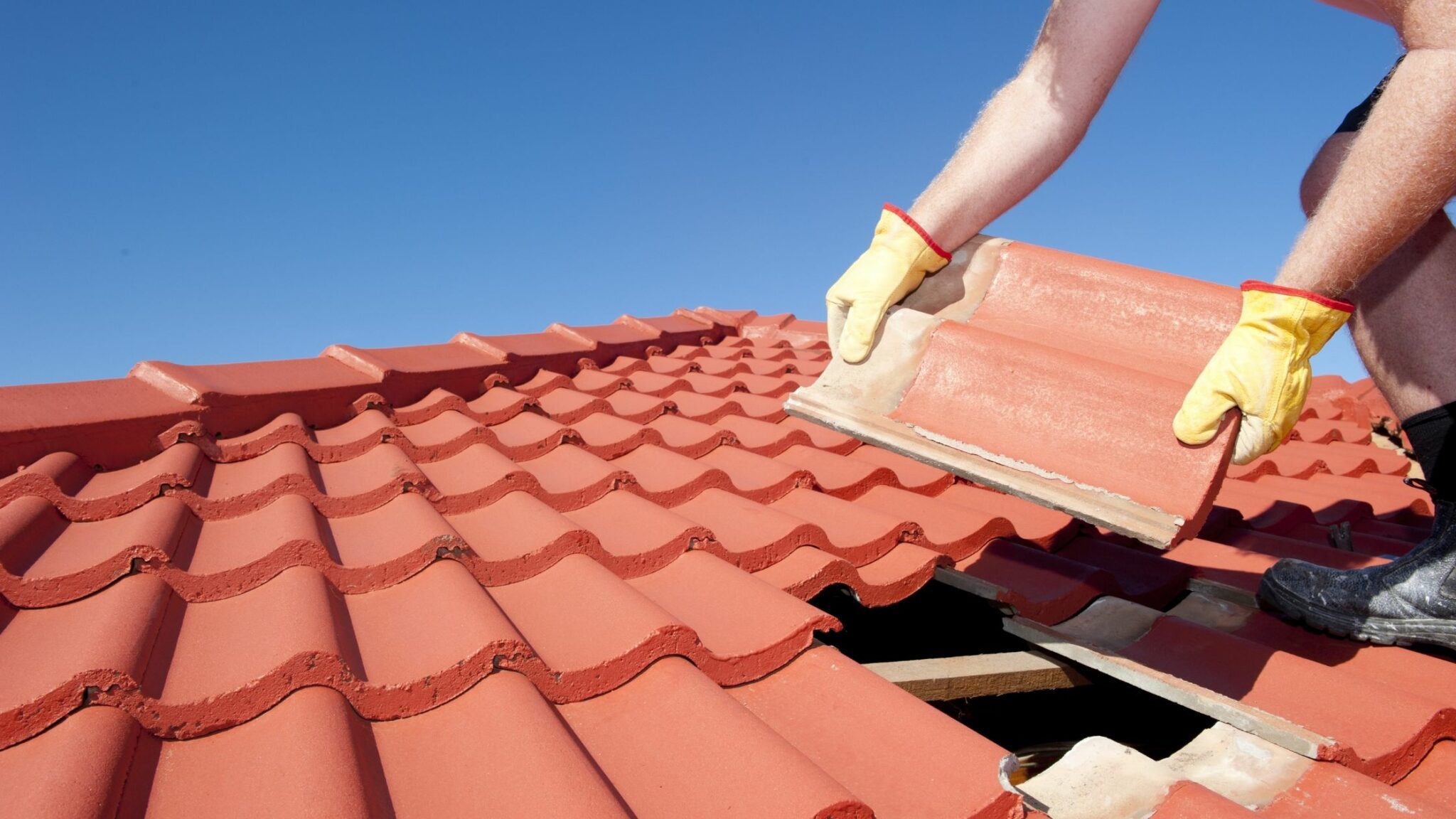5 Simple Techniques For Flat Roofing Installers
5 Simple Techniques For Flat Roofing Installers
Blog Article
Roof Repair Baltimore City: Specialist Roofing System Restoration Solutions To Fix Leaks And Damage Efficiently
Exploring Various Types of Roof Repair Works
Ever stared at a strange dark patch on your roof and wondered, " What's really going on up there?" Often, determining the ideal type of roof repair resembles detective work, unraveling hints left by the weather, time, and use. From subtle leaks to glaring damages, each repair work type tells a story.

Common Roofing Repair Work Revealed
- Drip Repair works: The sly culprits-- tiny fractures or holes where water slips in. Ignoring them can turn a mild trouble into a pricey headache.
- Shingle Replacement: Missing or broken shingles aren't just an eyesore; they're invites for water damage and insects.
- Flashing Repair: Those metal strips around chimneys and vents? When damaged, they become gateways for leaks.
- Roofing Vent Repair Works: Correct ventilation keeps your attic dry and your energy bills low. When vents fail, the roof suffers silently.
When Small Repairs Make a Big Difference
Imagine a pal who ignored a minor roofing system leak, thinking it was no huge deal-- till a storm hit, turning a drip into a deluge inside their home. This anecdote underscores why prompt repair work matter. The ideal repair might be as easy as sealing a fracture or as involved as replacing numerous shingles. But how do you choose? Here's a fast choice guide:
| Concern | Typical Repair work | Signs to Expect |
|---|---|---|
| Leakages | Sealant application or patching | Water stains on ceiling, mold development |
| Damaged Shingles | Shingle replacement | Missing granules, curling edges |
| Flashing Problems | Metal flashing repair work or replacement | Rust, separation from roof |
| Ventilation Problems | Vent repair work or setup | Excessive attic heat, wetness accumulation |
Does not the intricacy of roof repairs make you value the workmanship behind a strong roofing? In some cases, a patchwork task isn't enough-- other times, a fast repair revives your entire roof. What's clear is this: comprehending the types of repair work empowers property owners to act decisively, securing their financial investment before small fractures become large gorges.
Revealing the Essential Roofing Repair Work Materials
When a roof whispers indications of wear, the products you pick for repair work can either extend its life or quicken its death. Ever observed how a handful of loose shingles can result in a waterfall of leakages? That's the delicate dance in between asphalt shingles and weather condition's unrelenting assault. These shingles, typically the first line of defense, are prized for their balance in between resilience and ease of installation. But beware-- just covering with mismatched shingles can turn a quick repair into a future headache.
Metal flashing frequently escapes notification up until water stains appear on ceilings. This simple strip guards susceptible joints where various roofing system areas satisfy. An experienced roofer understands to examine and replace rusty flashing before mold claims triumph. It's the difference between a minor repair and a costly interior restoration
Products that Matter
| Material | Typical Use | Expert Pointer |
|---|---|---|
| Asphalt Shingles | Changing damaged or missing out on shingles | Match granule color and thickness for seamless mixing |
| Metal Flashing | Sealing roof joints and around chimneys | Use corrosion-resistant metals and seal edges with roofing cement |
| Roofing Cement | Sealing small cracks and protecting flashing | Apply while warm for finest adhesion and longevity |
| Roof Felt | Underlayment for moisture barrier | Essential thoroughly to prevent puncturing the waterproof layer |
Have you ever questioned why some roofing systems appear to weather storms unharmed while others fail? The secret typically lies underneath the surface in the underlayment. Roof felt, a simple yet critical product, serves as a 2nd guard when shingles stop working. Skimping here suggests inviting wetness to slip in undetected. Here's a professional insight: always ensure the felt lies flat without any wrinkles; even a small bubble can trap wetness and result in premature rot.
- Check fasteners-- loose nails can loosen shingles and stir disaster.
- Use a multi-layer technique; integrating materials boosts resilience.
- Remember, roof cement is your buddy however not a cure-all; it's best for area repair work.
In the realm of roof repairs, accuracy with products transcends simple patchwork. It's a calculated symphony of texture, wetness control, and weather condition resistance. The next time you lift a shingle, ask yourself: does this repair honor the roof's original defense or merely paper over the fractures?
Examining the Damage with a Keen Eye
Ever climbed up onto your roofing system just to understand that what appeared like a minor leak may be hiding a labyrinth of damaged shingles and warped decking below? The primary step in any roof repair is a meticulous inspection. Walk the perimeter with care and search for curled edges, dark spots, or granule loss on the shingles-- these subtle indications frequently whisper louder than an open hole. Don't just glance; study the angles, since water seepage seldom reveals itself pleasantly.
Event Materials: The Precision of Preparation
Before ascending the ladder, ensure you have all the essential tools at arm's reach. Imagine the disappointment of balancing on a slanting surface area, realizing you forgot your roof cement or roof nails. Here's a list to keep helpful:
- Replacement shingles matching your existing roof
- Hammer and galvanized roofing nails
- Roof cement or sealant
- Utility knife for precise cuts
- Flat crowbar to get rid of damaged shingles
- Safety belt and non-slip shoes
Accuracy in Removal and Replacement
Removing harmed shingles requires both strength and skill. Place the crowbar gently under the shingle, lifting nails without tearing surrounding areas. One may be tempted to tug powerfully, but progressive utilize prevents further destruction. When placing new shingles, stagger them correctly-- keep in mind, a misaligned shingle can become a gateway for rainwater, welcoming leaks that slyly erode your home's structure in time.
Sealing the Offer: Preventing Future Leakages
Using roofing cement isn't simply slathering tar; it's about producing a durable barrier. Dab a modest amount under the shingle tabs and press securely, guaranteeing a tight fit. Excessive cement can crack in the sun, insufficient invites moisture. Have you discovered how some roofings survive storms unscathed? That's the outcome of expert sealing, a subtle art that transforms easy repairs into long lasting defense.
Safety Tips Every DIY Roofing Professional Should Swear By
- Never work on a wet or windy day-- slips take place faster than you think.
- Use a durable ladder placed on firm ground and check its angle.
- Use gloves to protect your hands from sharp edges and nails.
- Keep an emergency treatment set close by; small cuts can intensify if ignored.
- Deal with a buddy whenever possible-- roofs aren't a solo adventure.
Why Trusting Expert Roofer Matters
Ever observed how a simple leak can quietly change into a catastrophe? Roof repair work demand precision, and working with amateurs typically leads to patchwork solutions that fall apart with the next storm. A professional contractor does not simply slap on shingles; they identify the root cause, whether it's worn flashing, compromised underlayment, or hidden rot.
Imagine climbing onto the roofing yourself, armed with a hammer and some nails, only to recognize you've gotten worse the issue. The truth is, roofing damage isn't constantly visible from the ground or perhaps the attic. Specialists wield moisture meters and infrared cams-- tools that expose the hidden. Would you trust your home's guard to guesswork?
Secret Benefits of Specialist Roofer
- Precise Assessment: They identify subtle signs like granule loss or sagging decking that many miss.
- Code Compliance: Ensuring repair work meet local building regulations, preventing future insurance headaches.
- Product Competence: Picking the ideal materials to match your roofing's special profile and climate obstacles.
- Safety First: Navigating high slopes and heights with appropriate harnesses and equipment.
- Service warranty Guarantee: Support repair work with warranties that secure your financial investment.

Specialist Tips for Hiring the Right Roofer
- Validate licensing and insurance coverage-- don't gamble with unproven credentials.
- Ask for a comprehensive written price quote detailing scope and products.
- Inquire about their process for addressing concealed damage uncovered during repair work.
- Examine how they manage particles elimination-- roof work should not leave a mess behind.
- Verify experience with your particular roof type, whether asphalt, metal, or tile.
In roof repairs, shortcuts typically cost more in the long check here run. The specialists know when to fix, when to change, and how to extend your roofing system's lifespan. Isn't it better to protect your home's first line of defense with those who see beyond the surface area?
Specialist Roofing System Fixes in Baltimore County
Baltimore County is a dynamic location understood for its diverse communities and rich history. With a population that delights in a mix of suburban and urban living, the county provides tourist attractions like the scenic Loch Raven Tank and the dynamic Towson Town. Locals take advantage of a strong regional economy and access to quality public parks and cultural events, making it a desirable place to live and work.
For reputable guidance and a totally free consultation on roof repairs, think about reaching out to CRG Roofing and Siding. They offer expert guidance tailored to your requirements and help guarantee your roofing system stays in exceptional condition.
Report this page